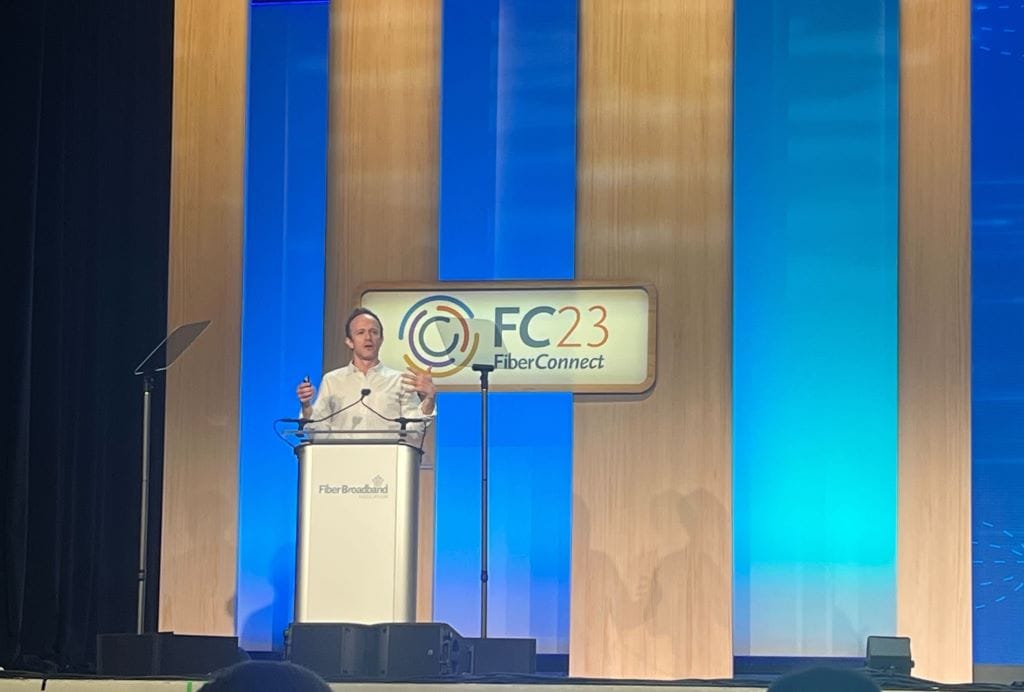NTIA Waives 55 Percent Cost Requirement for Fiber Electronic Components
Manufacturers can self-report products are Buy America compliant to be included on NTIA public list.
Teralyn Whipple

ORLANDO, August 23. 2023 – The National Telecommunications and Information Administration is proposing to waive the 55 percent cost requirement for components of fiber electronics in the waiver for Build America Buy America regulations for the Broadband Equity Access and Deployment program released on Tuesday.
Buy America regulations require that projects receiving federal funding must source material and 55 percent of the cost of components from American manufacturers as part of the White House’s initiative to enhance domestic manufacturing. The proposed waiver preserves the 55 percent cost requirement for fiber optic cables.
But the waiver proposes to waive the 55 percent cost of components test for the four categories of electronics that are not waived for all Buy America requirements – optical line terminals and remote optical line terminals, OLT line cards, optic pluggable and optical network terminals and optical network unites. Electronics will still need to be made in the United States, but U.S. components will not need to hit 55 percent of the total cost.
Many commenters to the NTIA raised concerns that integrated circuits in the components alone make up the majority of the cost of an electronic and are primarily manufactured in Southeast Asia, William Arbuckle, policy advisor at the NTIA, said in remarks to Fiber Connect attendees on Wednesday.
Additionally, fiber component manufacturers that express commitment to onshore manufacturing of key electronics may self-certify that their projects are compliant with Buy America preference, according to the NTIA proposal. The NTIA will publish and maintain a list of manufacturers and their products that the company has certified, subject to fine and imprisonment, are compliant to Buy America.
The list will alleviate manufacturer’s concerns that they will be undercut by companies falsely claiming to be Buy America compliant after making heavy investment in U.S. manufacturing, said Arbuckle.
“Working alongside the Department of Commerce, we will continue to take the necessary steps required and plan to become the first broadband technology vendor to be listed as Buy America compliant – eliminating the guesswork for any states or infrastructure builders participating in the BEAD program,” said Sandy Motley, president of fixed networks at Nokia in a press release.
The goal for Buy America waiver is to ensure that U.S. manufacturing is maximized while simultaneously ensuring that providers are able to build out the necessary infrastructure in a sustainable way, said Arbuckle. He added that the NTIA met with as many fiber providers and suppliers to discuss the possible barriers to Buy America requirements which heavily influenced the waiver.
Each BEAD project will have the opportunity to apply to a di minimis waiver that applies to a catch all category of other network equipment, which includes lashing wire, brackets, and handhelds, continued Arbuckle. Electronics are exempt from the waiver but the NTIA hopes that it will provide some flexibility to the program, he said.
The NTIA guidance comes at the heels of guidance released by the Office of Budget Management last week which clarified Buy America rules for all projects funded under the Infrastructure, Investment and Jobs Act. NTIA’s proposed waiver will work hand-in-hand with the OBM guidance, said Arbuckle, but specified that BEAD-specific guidance comes directly from the NTIA.
This month, Nokia announced an extensive fiber electronics manufacturing plan in Wisconsin that will provide equipment for new BEAD project builds, making it the first telecom vendor to domestically manufacture these materials. Nokia’s announcement is one of many electronics and fiber domestic manufacturing announcements from providers like CommScope and Corning.








Member discussion